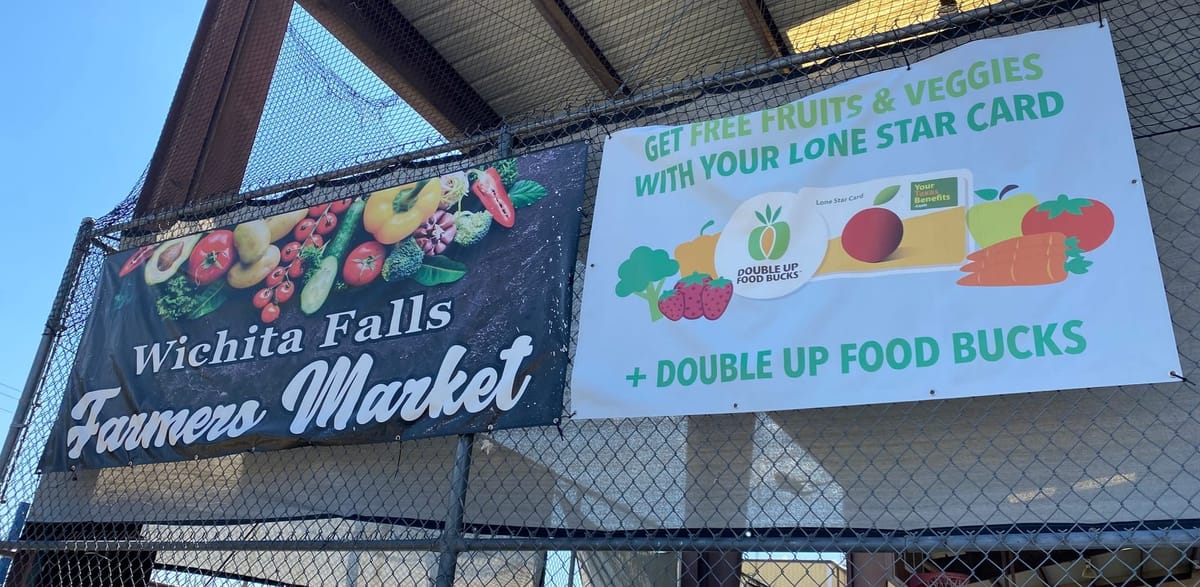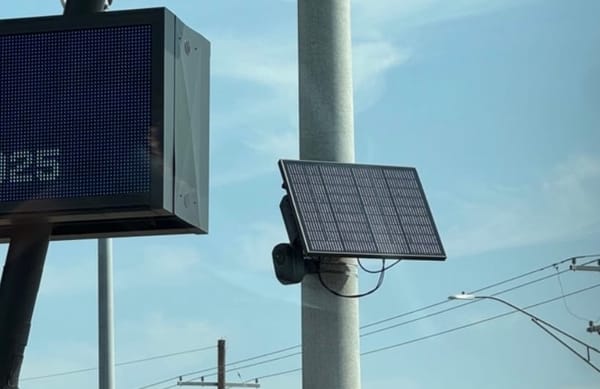Inflation across Texoma leads to increased need for food security resources
As inflation rises, many people are left trying to find access to resources to keep them afloat. Fortunately, more community organizations are stepping up to supply educational information and essential supplies to address the need.

Within the last few years, inflation has impacted nearly every aspect of life. From a seemingly unobtainable housing market, to the considerable jump in the cost of electronics, everyday needs seem more out of reach than ever before. As a result, many people in the Texoma area are struggling to obtain enough food to feed their families three meals a day.
The issue isn’t divided between rural and urban communities either. Though community assistance in obtaining these resources may provide more options in an urban setting, the need for such resources is just as likely in a rural area. In a Dark Roast Report poll that called on the perspectives of residents around Texoma, 100% of followers voted that they had experienced the greatest amount of inflation in grocery costs.
According to the USDA, food prices, obtained through both groceries and eating out, are expected to continue to increase at a rate that reflects the current economical state. Though the prices may be in line with the rising rates of the economy as a whole, the rise of pay isn’t escalating at the same degree, causing an imbalance between what people make and what they can afford. This is especially the case in states like Oklahoma and Texas that are trying to boost the economy by catering to businesses and buyers from out of state. However, many residents are concerned that the focus on out-of-state growth will result in current residents being left to struggle through stormy waters without a lifeboat to help.
One response that’s become a bit of a trend amidst the rising costs of food has been adopting more self-sustaining practices, such as backyard gardening. This can take several forms, depending on the sources and space people have available. From growing plants in buckets to incorporating raised beds in a yard, growing food can often be a much cheaper alternative to buying organic produce. Seeds are much more affordable and can produce throughout the summer or fall, versus a one-time purchase of fruits and vegetables.
Along with growing food at home, many people are beginning to pick up timeless practices such as canning, dehydrating meats, and baking bread, which can stretch provisions throughout the winter months. Though these practices take a bit of effort to learn and perfect, they’ve lasted centuries for a reason. As they’ve become more popular, more resources have become available to instruct people on how to safely start these practices. There are various places in both Southwest Oklahoma and North Texas that supply such classes. A couple examples include the OSU extension office in Lawton and the Texas A&M AgriLife Extension Office in Wichita Falls.

In addition, the Lawton Farmers Market often holds classes focused on gardening and self-sustainability. Farmers Markets as a whole often provide affordable access to food, or benefits to help low-income families obtain access to healthy, quality foods. For instance, the Lawton Farmers Market participates in various programs aimed at providing food security to those that don’t have access to it otherwise, such as SNAP, Double Up Oklahoma, OKFresh, and the Senior Farmers Market Nutrition Program. The Wichita Falls Farmers Market also participates in such programs, like SNAP, the Bring a Buddy Program, and Double Up Bucks Texas.
However, Farmers Markets only take place once or twice a week, so they aren’t always the most reliable means of supplying food to the whole family. When additional food is needed and funds are scarce, community food supply resources come into play. A common example that most communities have nearby are Food Banks. Many low-income community members rely on food banks to provide their family with basic needs not limited to food, but also hygiene products.
The new director of the Lawton Food Bank, Alex Minter McCann, said that there’s a growing demand for items obtained through the food Bank, and these needs can realistically only be filled through community support – from individual donations and the support of local businesses. She mentioned that volunteers are equally important to the effort of ensuring no family in the community goes hungry.
Minter McCann said that in her time at the food bank, the group she feels tends to go overlooked for needing support is senior citizens, as they often live on fixed incomes and require additional costly items, such as medications. She also shared that the Food Bank is beginning initiatives to supply educational resources to help community members in need learn skills associated with parenting, cooking, literacy, and life skills.
“During my time as the Success By Six Family Empowerment Director with United Way of Oklahoma, I witnessed first-hand how many families struggled with needs that went beyond food,” Minter McCann said. “Parents were seeking help with basics like diapers, access to free books to support early literacy, and financial literacy classes to help them build a stronger foundation for the future. Those experiences showed me just how interconnected the needs of families are and how critical it is that resources be accessible to everyone.”
The Wichita Falls Food Bank offers many of the same resources. Additionally, the Wichita Falls Food Bank provides an extra step toward accessibility by utilizing a mobile food pantry to supply food across the broader community. The Mobile Food Pantry, much like a Mobile Wellness Unit, sets up at different locations in town to supply food resources to that area. This addresses the issue of accessibility for those who don’t have the transportation to make it to the food bank. The schedule for the Mobile Food Pantry is available on their website.
For those in the community whose schedules don’t always align with Food Bank hours, there are other more easily accessible means of obtaining food, such as food pantries and blessing boxes. These are commonly maintained by churches, non-profit organizations, or businesses in the community that are motivated to directly address community needs for food. Food Pantries in Wichita Falls can be found here and Food Pantries in Lawton can be found here.
For these resources to function properly and provide food and other necessary items to those in need, they require the support of the community. For those that have the supplies, money, or time to volunteer, these organizations could use all the help they can get to continue to provide for as many families and individuals as possible. While being self-sustaining is an excellent response to navigating a difficult time economically, so too is being able to rely on the community for help.




